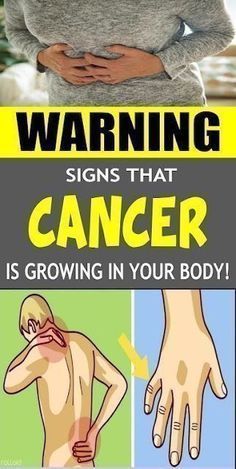Early signs of cancer growth are an important part of early diagnosis and treatment. Understanding these signals is important in determining the course of treatment and increasing the chances of recovery. In this article, we will look at the first signs that may indicate the growth of cancer in your body.
Weight change:
Whether you’re overweight or underweight, if you notice unexplained changes in your weight, it could be a sign of a health problem, including cancer. Sudden changes in weight require your attention and a doctor’s examination.
Fatigue and exhaustion:
Extreme tiredness and constant fatigue can be a sign of cancer. The growth of cancer cells drains your body of energy and makes you feel tired even without physical exertion.
Unexplained pain:
Chronic or unexplained pain anywhere in the body can be a sign of cancer. Pain should be monitored and any changes reported to the physician.
Skin changes:
Skin discoloration, unusual skin growths, and even persistent itching can be signs of a medical problem, such as skin cancer.
Changes in the form of urine:
A change in the color of the urine or the presence of blood in the urine may indicate a problem with the kidneys or urinary tract and may be associated with the growth of cancer.
Changes in the shape of the intestines:
Changes in bowel habits, such as constipation or chronic diarrhea, can be a sign of digestive disorders, including colon cancer.
Unexplained bleeding:
Unexplained bleeding from any part of the body, whether it’s blood in the urine, stool, or mouth, should get your attention and require immediate medical attention.
Sound changes:
A change in voice or hoarseness when swallowing or speaking can be a sign of problems with the larynx or vocal cords, as well as possible laryngeal cancer.
Shortness of breath:
Unexplained or persistent shortness of breath may indicate lung or respiratory problems and may be associated with cancer growth.
These early symptoms indicate the need for a quick response and medical examination to confirm that there are no serious health problems. Early detection and prompt health care are critical to increasing the chances of treatment and recovery.



